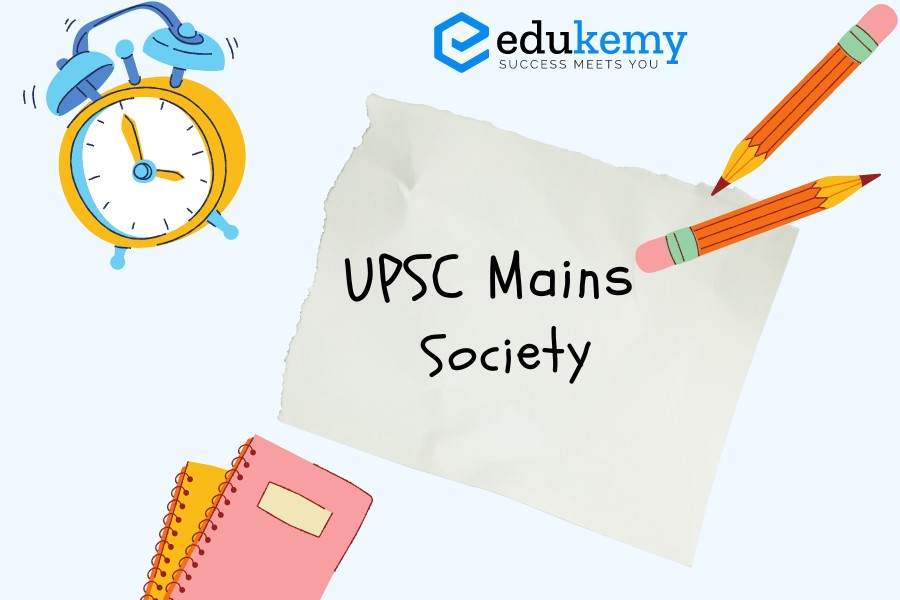
Contents
Introduction:
Communalism, a divisive ideology rooted in religious or ethnic affiliations, has cast a shadow over India’s rich diversity. The persistent issue of communal attacks, stemming from such divisive beliefs, poses an ongoing threat to the unity and social cohesion of the nation.
Body:
Communalism as a Cancer:
Communalism, analogous to cancer, infiltrates the social fabric of the Indian Nation, fostering divisions and conflicts. Similar to cancer’s invasive spread within the human body, communalism divides communities along religious or ethnic lines, nurturing tensions and discord that undermine the nation’s unity and stability.
| Historical Context: From the partition of 1947 to subsequent communal clashes, these incidents have left deep wounds, sowing mistrust among different communities, hindering social cohesion, and posing a significant challenge to the nation’s unity. |
Impact of Communal Attacks on the Body of the Indian Nation:
- Erosion of Social Fabric: Communal attacks corrode India’s social fabric, breeding mistrust and animosity among religious communities, thereby weakening national unity. Example: Communal attacks like the 2002 Gujarat riots.
- Threat to National Integration: Communal attacks jeopardize national integration by frequently escalating into large-scale riots, exacerbating divisions and obstructing the path to a harmonious and unified nation. Example: The 1992 Babri Masjid demolition in Ayodhya triggered large-scale riots and conflicts.
- Economic Consequences: Communal attacks bear adverse economic repercussions, causing disruptions in business, declining investments, and deterring economic growth in affected regions. Example: The 2013 Muzaffarnagar riots disrupted businesses in the region.
- Political Exploitation: Communalism is cynically exploited for political gains, as some politicians manipulate religious sentiments to secure votes, intensifying the complexity of the problem.
- Humanitarian Crisis: Communal attacks create a humanitarian crisis, displacing people, causing injuries, and compromising the well-being of affected communities. Example: The 2002 Godhra riots in Gujarat.
- Undermining Cultural Diversity: Communal attacks undermine India’s cultural diversity by emphasizing religious differences over the cultural and regional commonalities that should foster national unity. Example: The 2008 attacks in Orissa targeted Christians.
- Legal and Judicial Challenges: The legal and judicial systems grapple with overwhelming caseloads related to communal attacks, making it challenging to ensure justice and address the root causes effectively. Example: Cases of the 2020 Delhi Riots are still ongoing.
Way Forward:
- Promote educational initiatives emphasizing religious tolerance, unity in diversity, and interfaith understanding from an early age.
- Reform the legal framework to expedite the judicial process for cases related to communal violence, ensuring swift justice for victims. Encourage responsible reporting by the media to avoid sensationalizing communal incidents, which can exacerbate tensions.
- Promote ethical journalism that focuses on unity and the common bonds that unite communities. Hold politicians accountable for using communalism for electoral gain through transparent and stringent electoral laws. Invest in economic development in areas affected by communal violence to create employment opportunities and promote social cohesion.
- Engage with international organizations and other nations to share best practices in countering communalism and promoting social harmony.
- Focus on empowering the youth with education, skills, and opportunities to ensure they become agents of positive change and advocate for communal harmony. Support NGOs and grassroots movements dedicated to fighting communalism.
Conclusion:
Communal attacks indeed function as a malignant cancer affecting the body of the Indian nation. To safeguard India’s unity, harmony, and progress, addressing the root causes of communalism and fortifying justice and equality institutions are essential. Only through these combined actions can India eliminate this entrenched threat, securing a brighter future for all its citizens.

In case you still have your doubts, contact us on 9811333901.
For UPSC Prelims Resources, Click here
For Daily Updates and Study Material:
Join our Telegram Channel – Edukemy for IAS
- 1. Learn through Videos – here
- 2. Be Exam Ready by Practicing Daily MCQs – here
- 3. Daily Newsletter – Get all your Current Affairs Covered – here
- 4. Mains Answer Writing Practice – here

